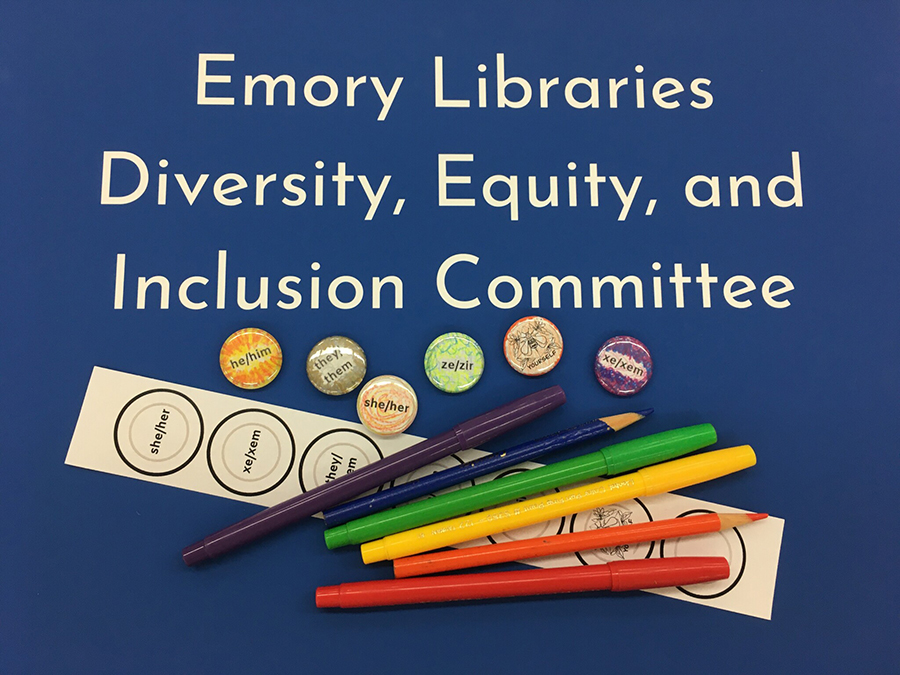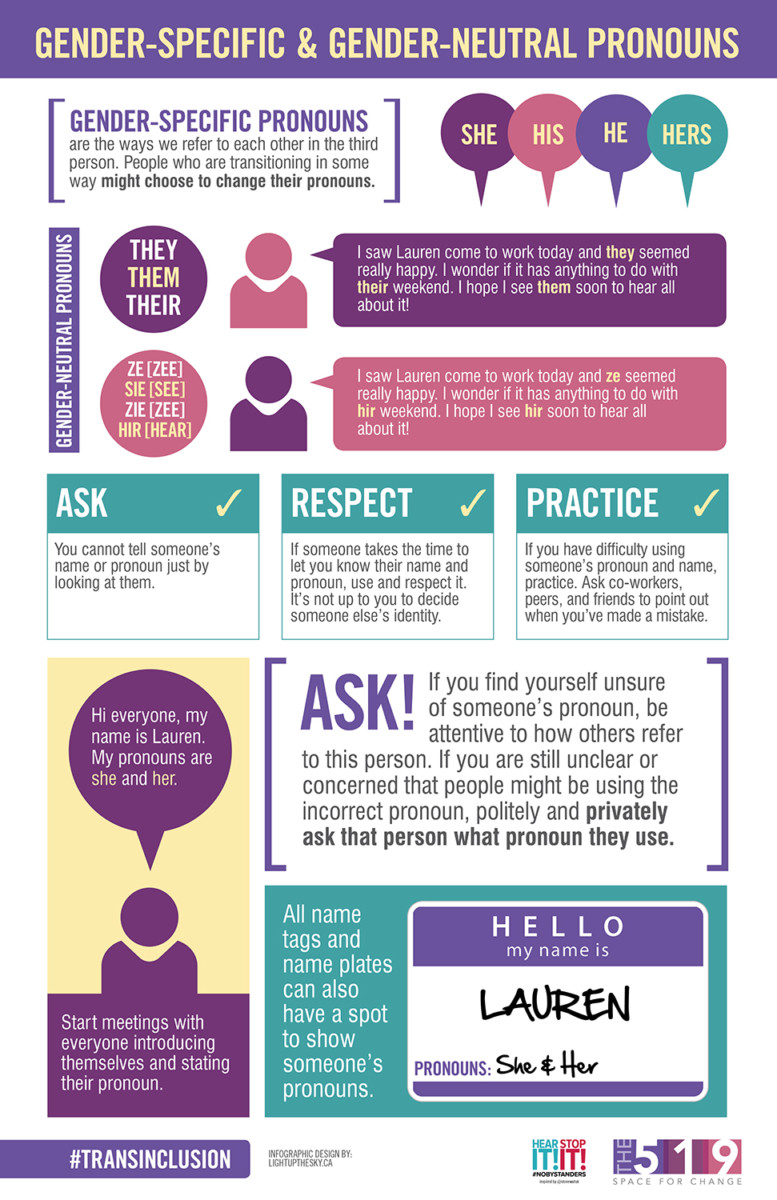Today is International Pronouns Day! Emory Libraries celebrates the entirety of every person who comes through our doors, and we are proud to promote respect and affirmation of everyone’s pronouns.
What is a pronoun, anyway?
Pronouns are the words that we use when referring to each other in the third person. For example, I use she/her/hers pronouns. Elizabeth uses they/them/theirs pronouns. I’m having lunch with Elizabeth tomorrow, and I can’t wait to talk to them about their week.
International Pronouns Day seeks to make respecting, sharing, and educating about personal pronouns commonplace. Referring to people by the pronouns they determine for themselves is basic to human dignity. Being referred to by the wrong pronouns particularly affects trans and gender nonconforming people. Together, we can transform society to celebrate people’s multiple, intersecting identities.
Isn’t using all these different pronouns bad grammar?
Not at all! Pronouns have always been shifting in usage in the English language. Dennis Baron, a professor of linguistics at the University of Illinois, notes that the pronoun ‘ou’ was used as early as 1789. ” ‘Ou will’ expresses either he will, she will, or it will.” (Baron 1986). In 1934, the pronoun ‘thon’ was even added to the Merriam-Webster English dictionary, though it never really came into common usage.
In the 1994 edition of Merriam-Webster, this is what the authors had to say on the topic: “We must remember that the English pronoun system is not fixed. Several centuries ago, the objective plural you drove the nominative and objective singulars thou and thee and the nominative plural ye out of general use. It appears to have happened for social reasons, not linguistic reasons. They, their, them have been used continuously for six centuries, and have been disparaged in such use for about two centuries.”
My pronouns are always correctly assumed, why should this matter to me?
Imagine going to work or class and everyone you interacted with consistently called you by the wrong name, even after you corrected them. You might feel frustrated, disrespected, or angry. This is what it can feel like to be misgendered!
Creating a culture in which we openly share our own pronouns and respect those of others allows us to embrace what makes each of us unique. If your pronouns are always correctly assumed, it’s still a good idea to share them when meeting new people. This small action makes a space in conversation for others to share their pronouns without feeling singled out and helps everyone feel that their dignity matters and will be respected. Just like you wouldn’t assume someone else’s name, don’t assume their pronouns!
For some tips on asking about others’ pronouns, watch this two-minute video!
Pronouns: How Do You Ask? (YouTube)
For more information and tips about pronouns, check out this infographic from The 519:
Source: https://www.the519.org/education-training/our-campaigns/trans-inclusion-matters
By Paige Crowl, Teaching and Learning Librarian, Oxford College Library (she/her/hers)


